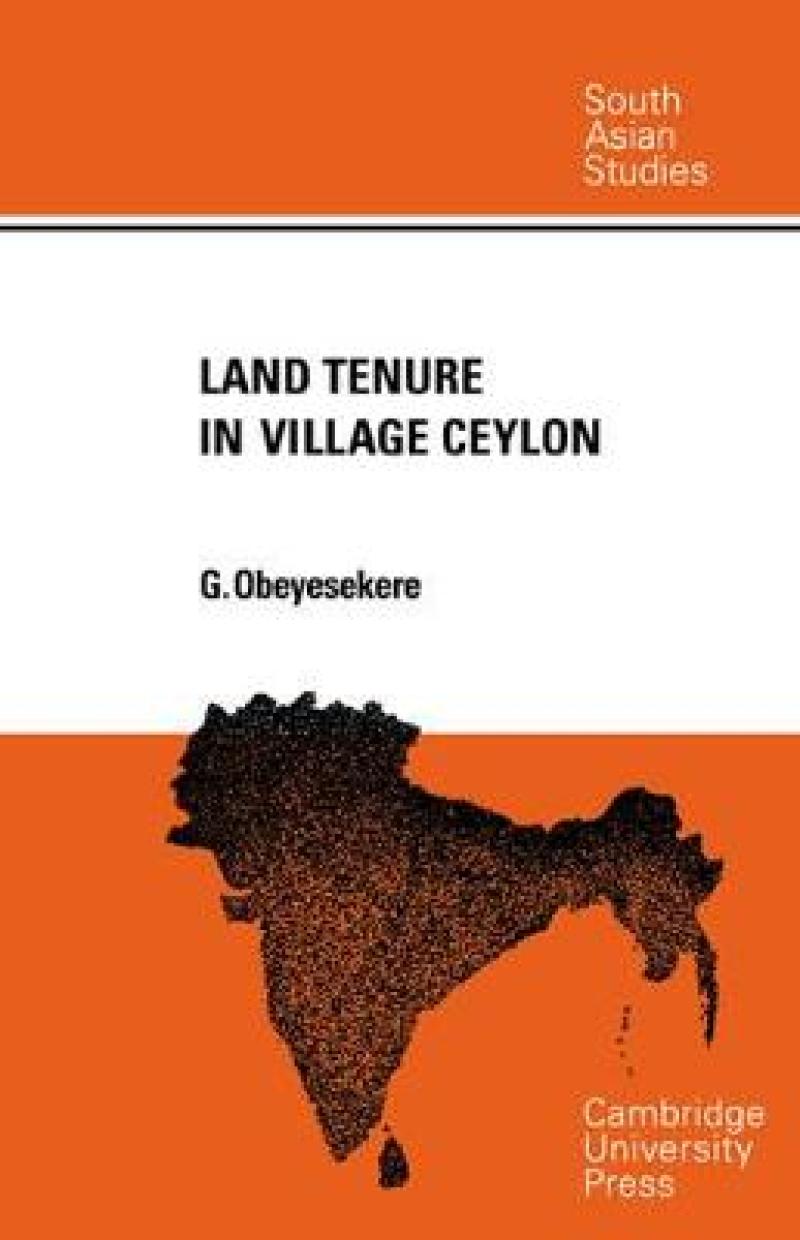This anthropological work of unusual historical depth describes the pattern of land tenure and resulting social structure in the Ceylonese village of Madagama. Dr Obeyesekere analyses the contemporary system in detail, and traces the evolution of every land holding and the correlated kinship pattern from the inception of the estate in 1790. The traditional cultivation and economy has been modified by land shortage, causing multiple division of shares, and by British rule which resulted in the introduction of Roman-Dutch law and the development of a cash economy. The practices of mortgaging and share speculation then became the basis of a new power structure derived from feudal norms of land ownership, and leading to radical reorganization of the traditional hamlet.
Les mer
1. Introducing Madagama; 2. The ideal model of land tenure; 3. The traditional laws of inheritance; 4. The diachronic devolution of the share system; 5. Factors of change; 6. Genealogy as a charter of rights; 7. The share market; 8. The ideal scheme in contemporary application; 9. The ideology of status and the formation of `Peldntiya'; 10. Kinship, residence and land tenure; 11. The theoretical and methodological background of the study.
Les mer
This anthropological work describes the pattern of land tenure and resulting social structure in the Ceylonese village of Madagama.
Produktdetaljer
ISBN
9780521053259
Publisert
2008-02-04
Utgiver
Vendor
Cambridge University Press
Vekt
440 gr
Høyde
216 mm
Bredde
140 mm
Dybde
20 mm
Aldersnivå
P, 06
Språk
Product language
Engelsk
Format
Product format
Heftet
Antall sider
348
Forfatter
